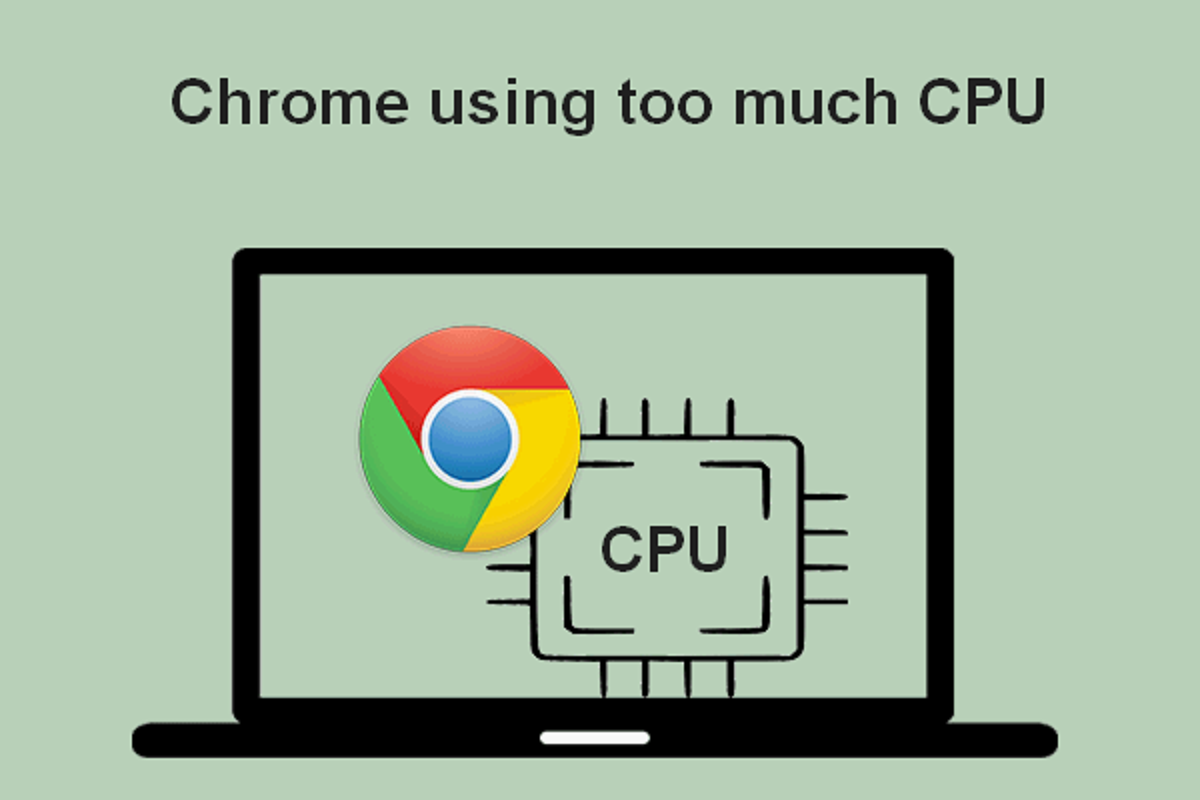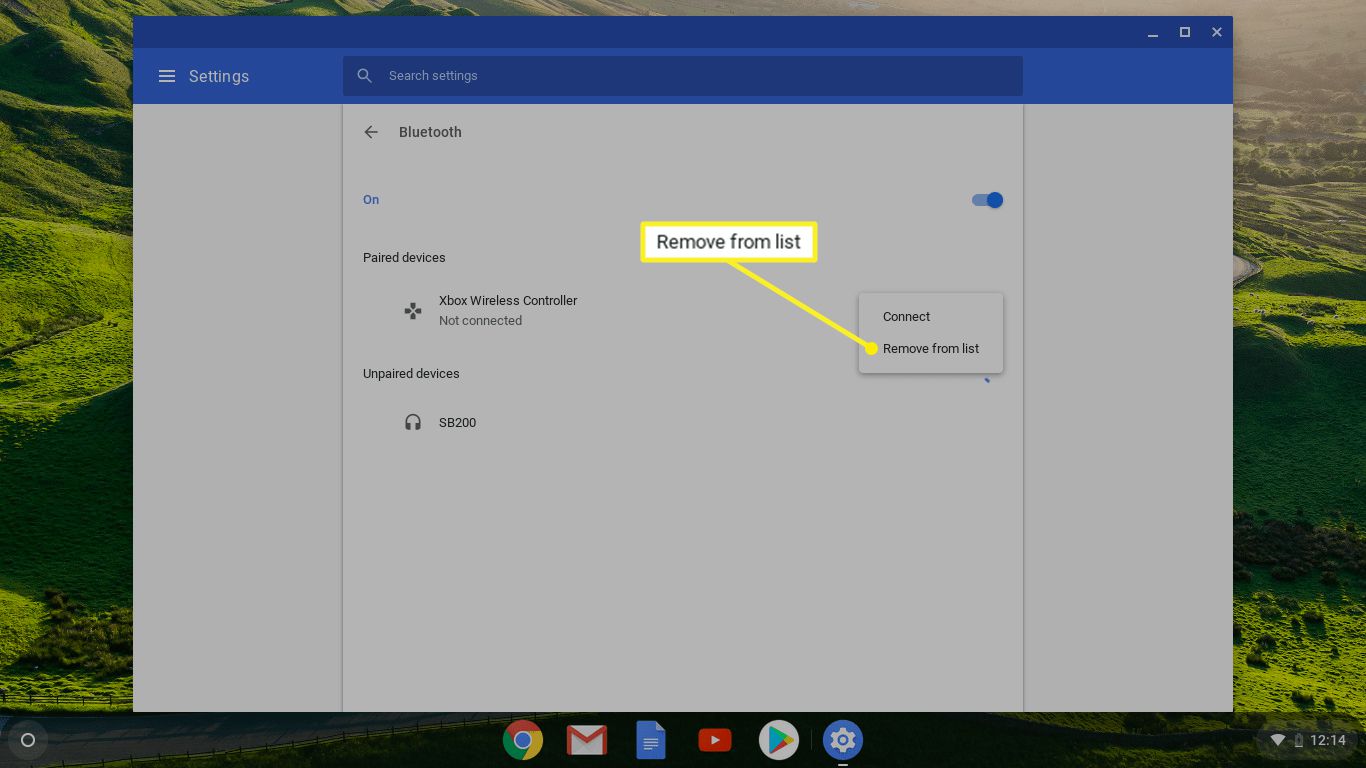Introduction
Google Chrome, the widely popular web browser, has revolutionized the way we access and interact with the internet. Its user-friendly interface, seamless synchronization across devices, and vast array of extensions make it a top choice for millions of users worldwide. However, despite its many advantages, Chrome's voracious appetite for battery power has been a persistent concern for users across various devices, from laptops to mobile phones.
In this article, we will delve into the factors contributing to Chrome's battery usage and explore practical tips to mitigate this issue. Whether you're a student relying on your laptop for long study sessions, a professional navigating a hectic workday, or a casual user seeking to optimize your device's battery life, understanding the nuances of Chrome's power consumption can significantly enhance your browsing experience.
Join us as we uncover the intricacies of Chrome's battery usage and equip you with actionable strategies to alleviate its impact on your device's battery life. Let's embark on a journey to unravel the mysteries behind Chrome's power-hungry nature and discover effective solutions to optimize your browsing experience.
Background on Chrome's Battery Usage
Google Chrome's widespread popularity is undeniable, with its robust features and seamless performance. However, its reputation for draining device batteries has been a persistent concern for users. The browser's substantial power consumption has been a topic of discussion across various platforms, prompting users to seek a deeper understanding of the underlying factors.
The issue of Chrome's battery usage gained prominence as users increasingly relied on portable devices for their browsing needs. Laptops, in particular, became essential tools for work, study, and entertainment, and the impact of Chrome's power consumption on these devices became more pronounced. Users observed that Chrome seemed to consume a disproportionate amount of battery compared to other browsers, leading to frustration and a quest for solutions.
As users delved into the intricacies of Chrome's battery usage, they discovered that the browser's multi-faceted nature played a significant role. Chrome's extensive range of features, including resource-intensive extensions, real-time syncing, and advanced web technologies, contributed to its heightened power consumption. Additionally, the browser's frequent updates and background processes further strained device batteries, prompting users to seek ways to mitigate these effects.
The evolution of web technologies also played a pivotal role in Chrome's battery usage. As websites became more dynamic and feature-rich, browsers like Chrome had to adapt to accommodate these advancements. While this allowed for a richer browsing experience, it also placed additional strain on device batteries, especially in scenarios where multiple tabs were open simultaneously.
Furthermore, the proliferation of multimedia content, such as high-definition videos and interactive web applications, added to Chrome's power demands. Users found that engaging with such content for extended periods led to noticeable battery drain, prompting them to explore alternative browsers or seek optimizations within Chrome itself.
In light of these observations, users began to seek a comprehensive understanding of Chrome's battery usage, aiming to strike a balance between the browser's advanced capabilities and its impact on device batteries. This quest for knowledge and practical solutions laid the foundation for a deeper exploration of the factors contributing to Chrome's power consumption, ultimately leading to the development of strategies to mitigate its impact.
The background on Chrome's battery usage sets the stage for a detailed examination of the factors contributing to this phenomenon, providing valuable insights for users seeking to optimize their browsing experience while preserving their device's battery life.
Factors Contributing to Chrome's Battery Usage
Google Chrome's robust feature set, while delivering an unparalleled browsing experience, also contributes to its substantial battery consumption. Understanding the specific factors that drive Chrome's power usage is crucial for users seeking to optimize their device's battery life. Let's explore the key elements that play a pivotal role in Chrome's heightened power demands:
-
Resource-Intensive Extensions: Chrome's extensive library of extensions empowers users with diverse functionalities, ranging from productivity tools to entertainment add-ons. However, many of these extensions operate in the background, consuming system resources and contributing to increased battery usage. Certain ad-blocking and security extensions, while beneficial, can exert a notable impact on battery life due to their continuous monitoring and filtering processes.
-
Real-Time Data Syncing: Chrome's seamless synchronization across devices ensures a consistent browsing experience, with bookmarks, history, and preferences readily available on various platforms. However, the real-time syncing process, especially when handling a large volume of data, can strain device batteries. The constant communication between devices to update and maintain synchronized information contributes to Chrome's power consumption.
-
Frequent Updates and Background Processes: Chrome's proactive approach to security and performance entails regular updates and background processes. While these updates are essential for maintaining browser stability and security, they can inadvertently impact battery life. Background processes, such as automatic updates and maintenance tasks, continue to operate even when the browser is not in active use, subtly draining the device's battery over time.
-
Advanced Web Technologies: The evolution of web technologies has ushered in a new era of dynamic and interactive web content. While this enriches the browsing experience, it also places additional demands on browsers like Chrome. The execution of complex scripts, rendering of high-definition multimedia content, and handling of interactive web applications contribute to Chrome's heightened power consumption, particularly when multiple tabs with resource-intensive content are open simultaneously.
-
Optimization for Performance: Chrome's emphasis on delivering a fast and responsive browsing experience necessitates efficient resource utilization. However, this optimization for performance, while beneficial for speed and responsiveness, can lead to increased power consumption. The browser's proactive preloading of web pages, caching of data, and aggressive tab management strategies, aimed at enhancing user experience, can inadvertently impact battery life.
Understanding these factors provides users with valuable insights into Chrome's power consumption dynamics, empowering them to make informed decisions and implement effective strategies to mitigate its impact on their device's battery life. By addressing these contributing elements, users can optimize their browsing experience while preserving valuable battery resources.
Tips for Reducing Chrome's Battery Usage
-
Efficient Extension Management: Evaluate the necessity of installed extensions and disable or remove those that are not essential. Prioritize lightweight, well-optimized extensions that serve a critical purpose to minimize background resource consumption.
-
Tab Management: Limit the number of open tabs to reduce the strain on system resources and battery. Consider utilizing bookmarking and tab suspension extensions to effectively manage and organize tabs, preserving battery life without sacrificing browsing convenience.
-
Optimize Real-Time Syncing: Tailor Chrome's synchronization settings to prioritize essential data, such as bookmarks and passwords, while minimizing the syncing of non-essential information. This selective approach reduces the frequency and volume of data transfers, alleviating the impact on battery life.
-
Scheduled Update Checks: Configure Chrome to perform update checks during specific times, such as during periods of low activity or when the device is connected to a power source. This prevents frequent background update checks from disrupting battery efficiency during critical usage periods.
-
Power-Efficient Browsing: Leverage power-saving features within Chrome, such as the 'Battery Saver' mode, which optimizes resource usage to extend battery life. Additionally, consider using browser extensions designed to minimize power consumption during browsing sessions.
-
Utilize Built-In Tools: Chrome offers built-in tools to identify and manage resource-intensive tabs and extensions. Leverage the built-in Task Manager to monitor and selectively close tabs or extensions that are consuming excessive resources, thereby reducing battery strain.
-
Enable Hardware Acceleration: Enabling hardware acceleration in Chrome offloads certain tasks to the device's GPU, enhancing performance while potentially reducing overall power consumption. This feature can be particularly beneficial when interacting with multimedia content and graphics-intensive websites.
-
Regular Browser Maintenance: Periodically clear browsing data, including cache, cookies, and history, to optimize Chrome's performance and reduce unnecessary resource utilization. This maintenance routine can contribute to improved battery efficiency over time.
-
Explore Battery-Optimized Extensions: Consider installing extensions specifically designed to optimize battery usage within Chrome. These extensions may offer features such as tab suspension, background process management, and power-efficient browsing modes to enhance battery life without compromising functionality.
-
Monitor Resource Usage: Stay vigilant about resource-intensive activities within Chrome by periodically reviewing the browser's Task Manager. Identifying and addressing processes or tabs that exhibit excessive resource consumption can significantly mitigate battery drain.
By implementing these practical tips, users can effectively reduce Chrome's battery usage without sacrificing the browser's advanced capabilities. This proactive approach empowers users to optimize their browsing experience while preserving valuable battery resources, ensuring a seamless and efficient interaction with the web.
Conclusion
In conclusion, Google Chrome's remarkable versatility and feature-rich environment have established it as a leading web browser, catering to diverse user needs and preferences. However, the browser's substantial battery consumption has been a persistent concern for users across various devices. Through a comprehensive exploration of the factors contributing to Chrome's power usage and the implementation of practical strategies to mitigate its impact, users can optimize their browsing experience while preserving valuable battery resources.
The intricate interplay of resource-intensive extensions, real-time data syncing, frequent updates, advanced web technologies, and performance optimization underscores the multifaceted nature of Chrome's power consumption. By understanding these contributing factors, users can make informed decisions regarding extension management, tab organization, synchronization settings, and browsing habits, effectively reducing Chrome's battery usage without compromising functionality.
The implementation of efficient extension management, selective tab organization, and power-saving features within Chrome empowers users to strike a balance between a rich browsing experience and optimized battery life. Leveraging built-in tools, exploring battery-optimized extensions, and monitoring resource usage enables users to proactively address Chrome's power consumption dynamics, ensuring a seamless and efficient interaction with the web.
As users navigate the dynamic landscape of web browsing, the quest for an optimal balance between advanced capabilities and battery efficiency remains paramount. By embracing the insights and strategies presented in this article, users can embark on a journey towards a more sustainable and rewarding browsing experience. The proactive implementation of these strategies not only alleviates the impact of Chrome's battery usage but also empowers users to harness the browser's full potential while preserving valuable battery resources.
In essence, the quest to optimize Chrome's battery usage transcends mere technical adjustments; it embodies a proactive approach towards enhancing the overall browsing experience. By embracing a holistic understanding of Chrome's power consumption dynamics and implementing practical strategies, users can embark on a journey towards a more sustainable and rewarding interaction with the web, ensuring that Chrome's advanced capabilities harmonize seamlessly with device battery efficiency.
















![How to Turn On Developer Mode on Chromebook [Step-by-step Guide]](https://robots.net/wp-content/uploads/2020/09/chrome-os-developer-mode-1-300x200.jpg)








